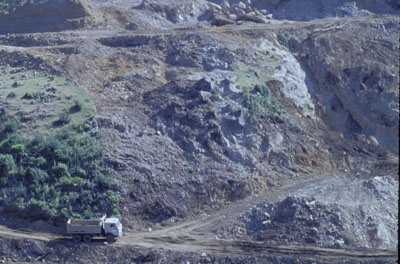Enhancing Capacity to Diversify the Mongolian Economy

Summary
Mongolia has successfully transitioned from a centrally planned to a market economy but remains overly dependent on its mining industries. Especially after the discovery of massive gold, copper, and other mineral resources, the government of Mongolia (GOM) needed help to define an economic agenda, develop its agricultural sector, encourage industrial clusters, and establish a process for investing its extractive industry revenues to support the country’s social development. When the GOM approached the World Bank for help, the Bank identified Chile and Kazakhstan as appropriate knowledge-sharing partners because both countries have large mineral sectors and have successfully implemented policies and reforms to diversify and grow their other economic sectors.
In a blended learning program---including workshops, case studies, videoconferences with research institutions, and study tours to Chile and Kazakhstan---key Mongolian government officials, policymakers, and other stakeholders learned about policy options for economic diversification and cluster development. Exchange participants learned about managing mining revenues, developing human resources, fostering innovation and entrepreneurship, and developing economic clusters around the agriculture and mining sectors.
“The exchange presented real insights from Chile and Kazakhstan on what worked and what didn’t work in terms of their policies and programs for economic diversification,” said Sunjidmaa Jamba, the World Bank team member who coordinated the exchange.
The exchange strengthened capacity in a number of key Mongolian institutions, including the National Development Innovation Committee, the Industrialization Policy Committee, and the Economic Policy and Competitiveness Center (EPCC). The exchange also strengthened a dynamic network of stakeholders who help advance the economic reform agenda in Mongolia, which has already led to a number of important policy directives and legislative reforms.
“I learned insights on how relevant policy institutions have played a role in transforming the economies that are more productive and competitive,” said B. Ganbat, Head of the Innovation Policy Department, the National Development Innovation Committee of Mongolia. “This helped me to take a joint leadership [role] in the Government innovation program along with my colleagues from the other institutions who attended the exchange. “
Beneficiaries / Participants
Over 20 years, Mongolia has managed to transition to a democratic, market-based economy. While having conducted many reforms to modernize, the country has also become overly dependent on its mining sector, where huge gold, copper, and other mining reserves have been discovered. The government of Mongolia (GOM) wants to diversify, develop a more robust agricultural sector, and foster economic clusters around its key mining and agriculture industries, while establishing a process to manage mineral revenues for the public good.
The GOM approached the World Bank for help in learning from other countries that had successfully implemented policies in similar situations. Chile was an ideal South-South partner because it is a significant mineral producer that has diversified its economy. The Chile Foundation, a nonprofit think tank that supports diversification initiatives, has been active in the South-South dialogue. Closer to Mongolia, Kazakhstan has pursued economic reforms since 1992 to encourage a free market economy through privatization of state enterprises and deregulation.1 Its current policies emphasize diversification and strengthening of non-oil sectors. Kazakhstan’s National Analytical Center, founded in 2007, provides research-based consulting to public sector agencies and ministries to inform public policy formulation.
The World Bank’s South-South Facility funded a knowledge exchange between Mongolia and these knowledge-sharing countries and their research institutions. Representatives from Mongolia’s First Deputy Prime Minister’s office; the National Development Innovation Committee; the Ministry of Food, Agriculture, and Light Industry; the Ministry of Minerals and Energy; and the Ministry of Education, Science, and Culture participated in a knowledge exchange with executive teams and key experts from think tanks, economic research institutes, and other cluster development institutions and enterprises in Chile and Kazakhstan. The objective of the exchange was for the Mongolian leaders to learn about policies and strategies to diversify Mongolia’s mining and agriculture-based economy, define an appropriate industrial and knowledge-based agenda, and ensure that mining revenues contribute to social programs.
Moving forward
The overall objective of the exchange was to speed up the formulation of strategies to promote rapid economic growth and diversification around the mining and agriculture sectors. Ultimately, the exchange aimed to help create employment and increase rural incomes. It also helped improve policies to manage mining revenue so GOM can maintain a social safety net program and improve Mongolia’s Human Development Indicators (HDI). The exchange provided strategic and complementary support to GOM’s fiscal reforms as outlined in Parliament’s fiscal stability law enacted in June 2010.
The exchange is linked to the World Bank’s Mining Sector Technical Assistance Project, the Sustainable Livelihoods Project, and the Governance Assistance Project dealing with effective management of mineral sector revenues. Many International Financial Institutions have initiatives to support growth in Mongolia, which need to be coordinated for maximum effect. The World Bank and other development partners will continue to provide technical assistance as these efforts gain momentum.

 China
China Colombia
Colombia Denmark
Denmark India
India Indonesia
Indonesia Mexico
Mexico Russian Federation
Russian Federation Spain
Spain United Kingdom
United Kingdom